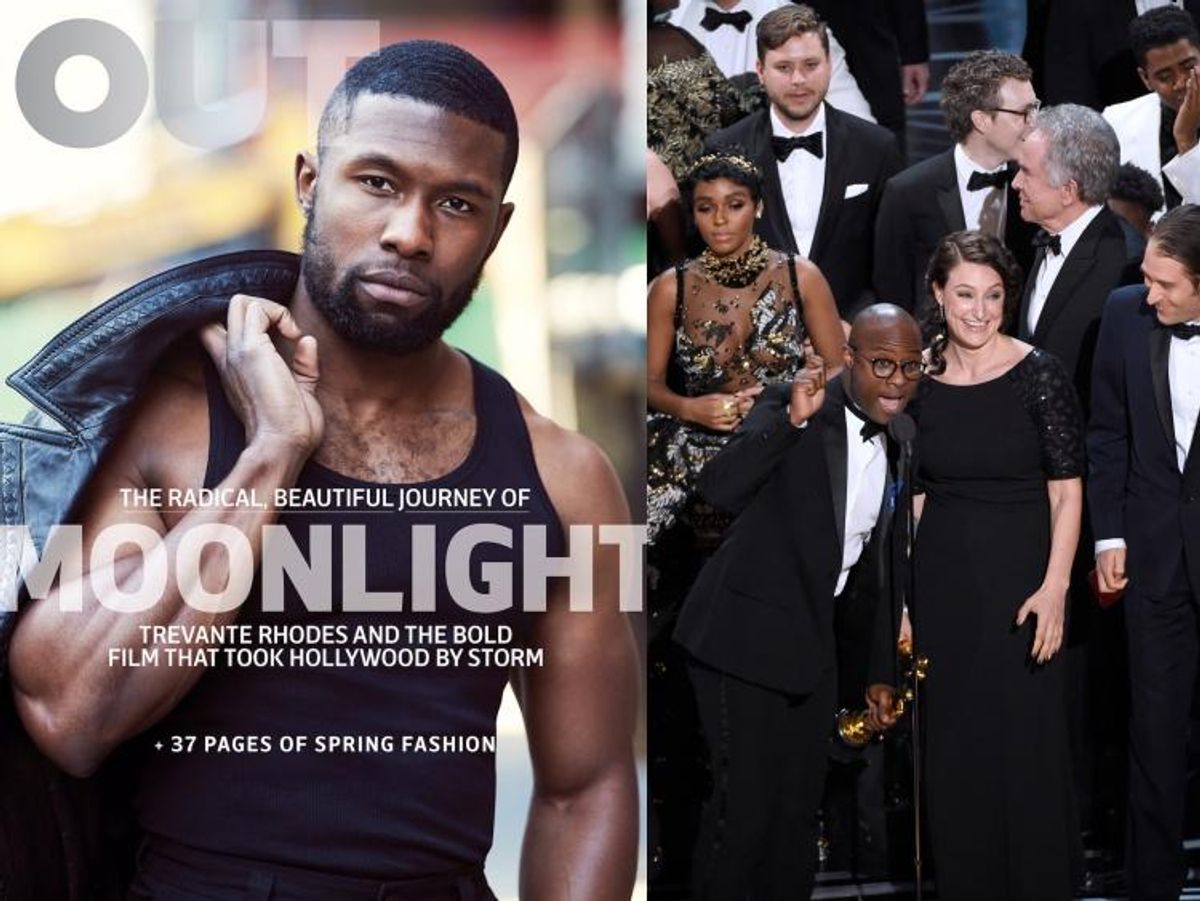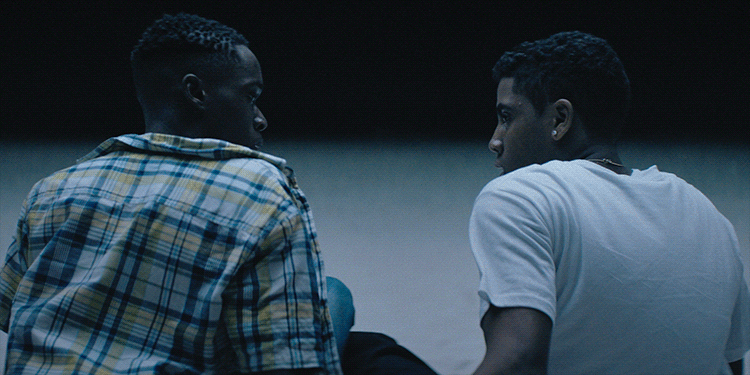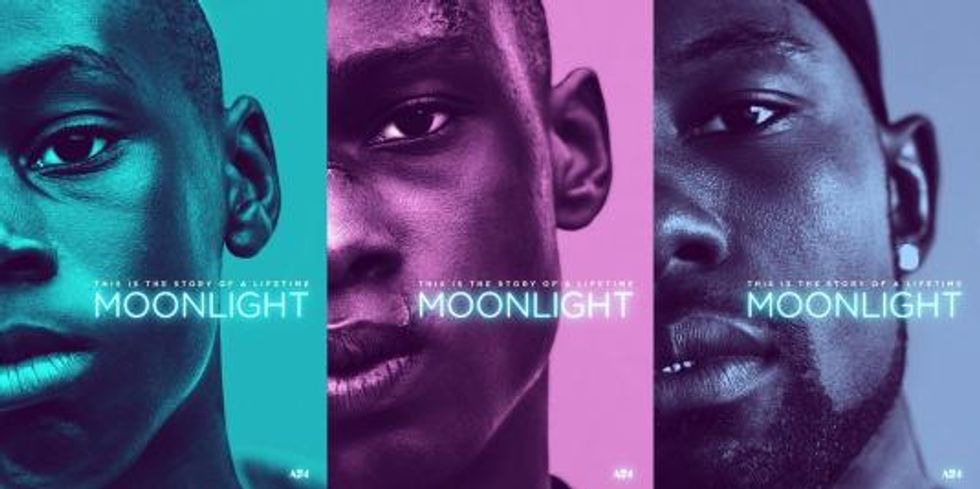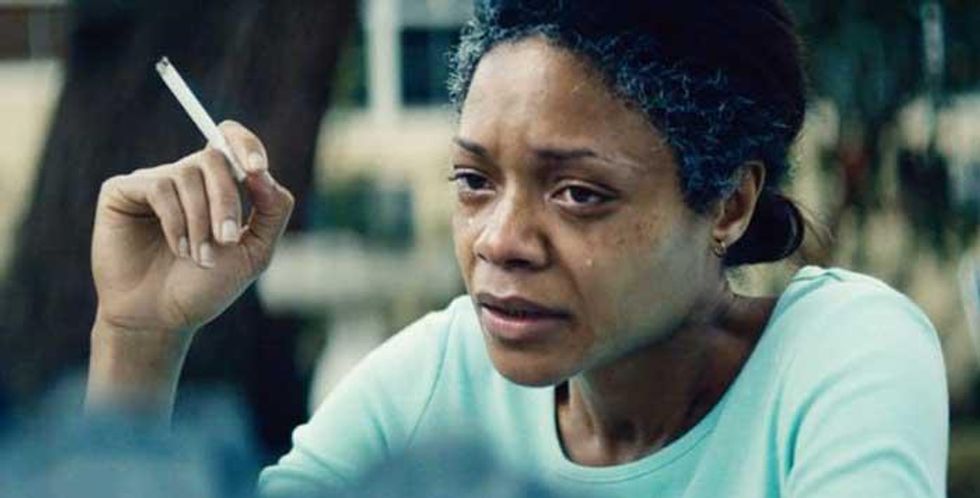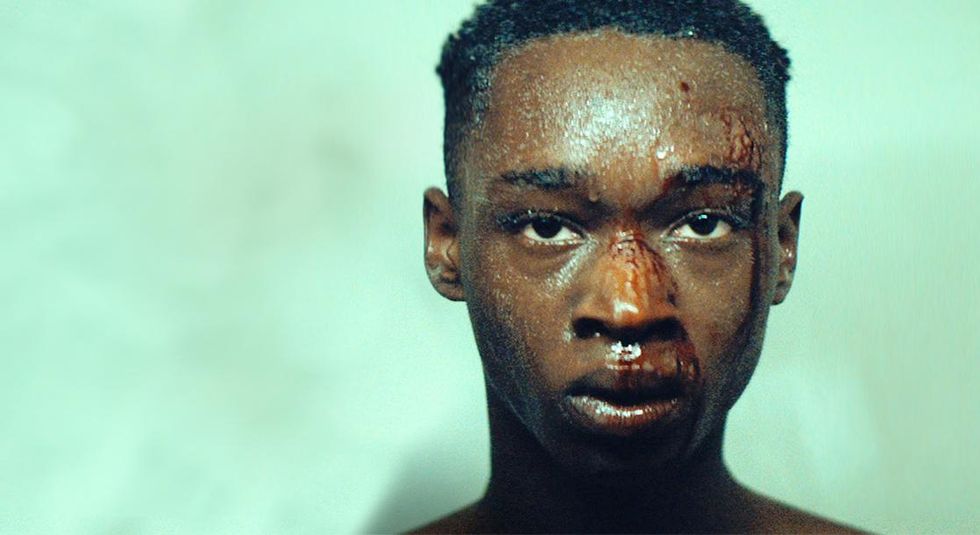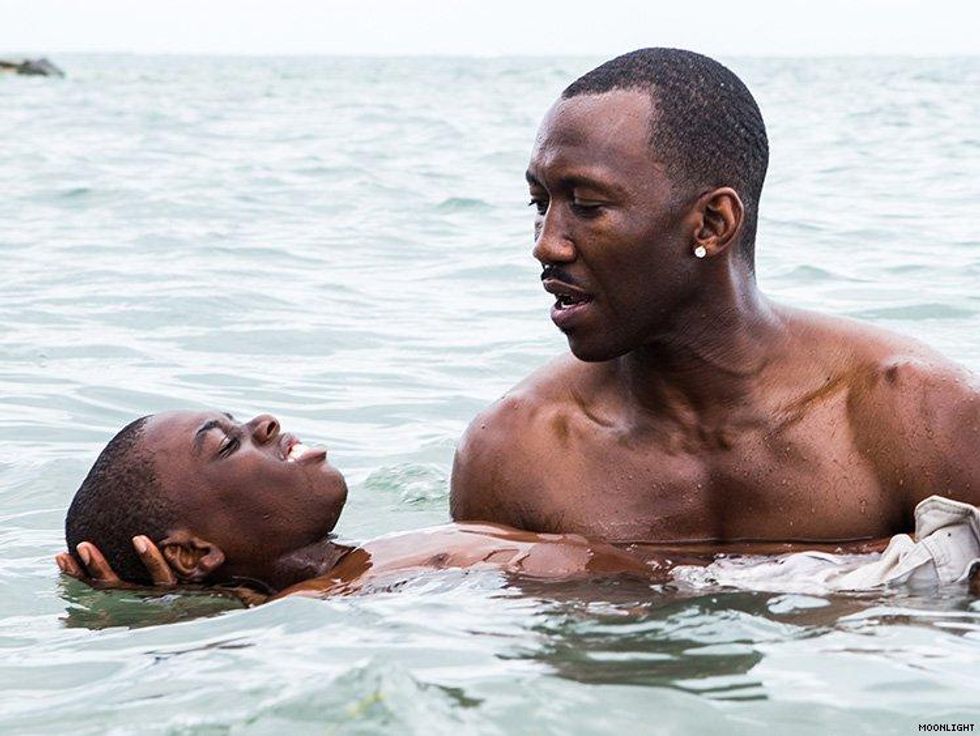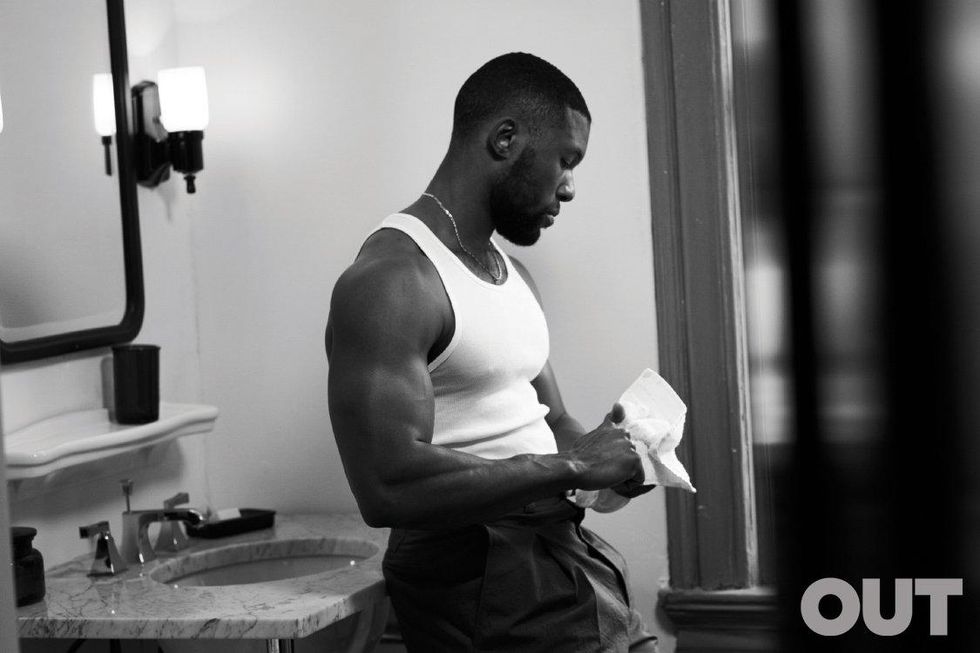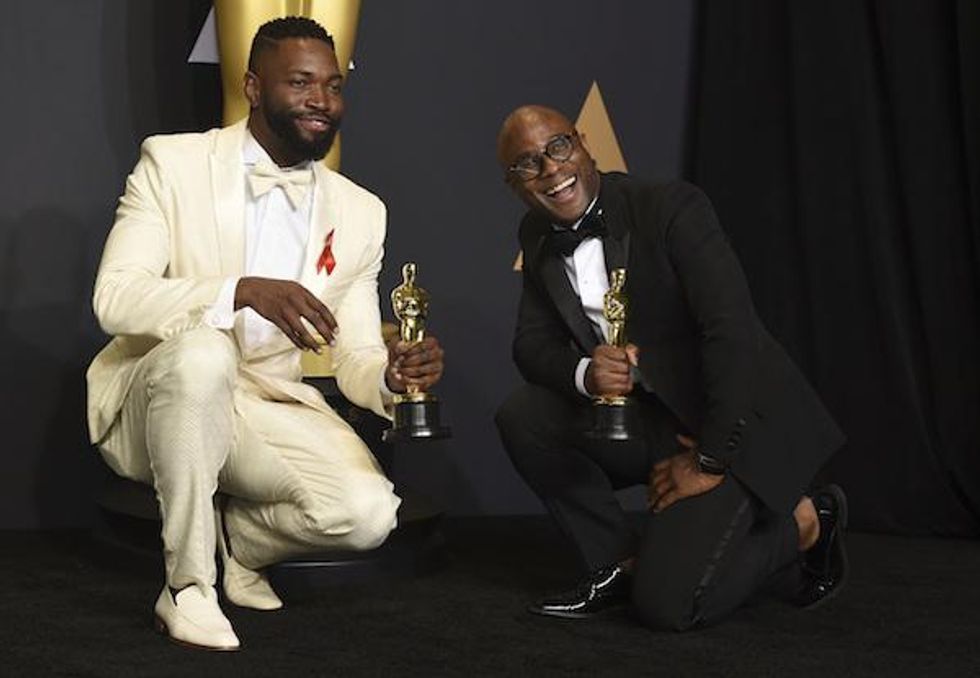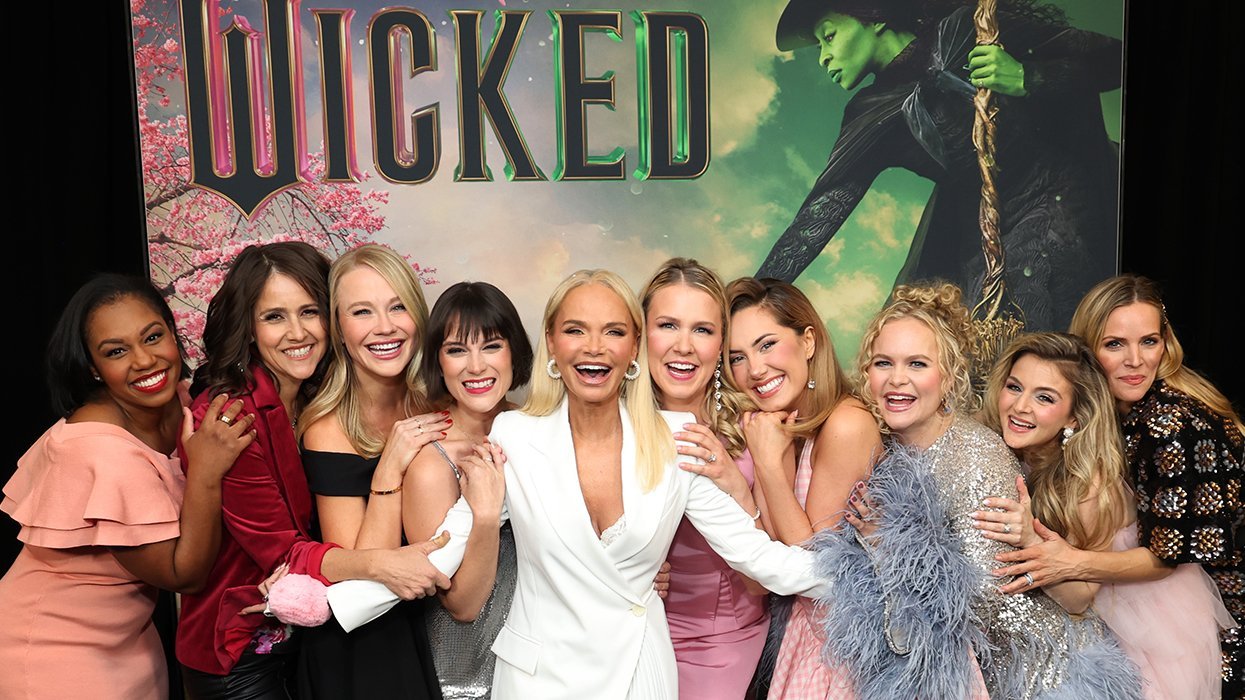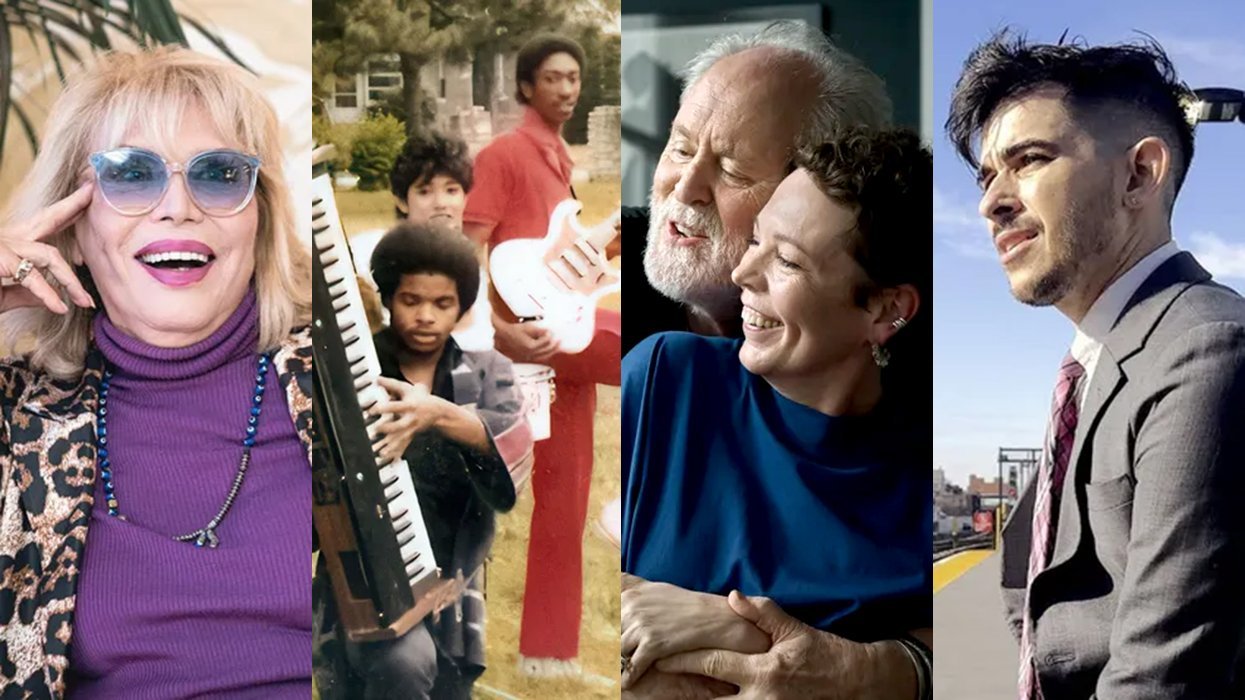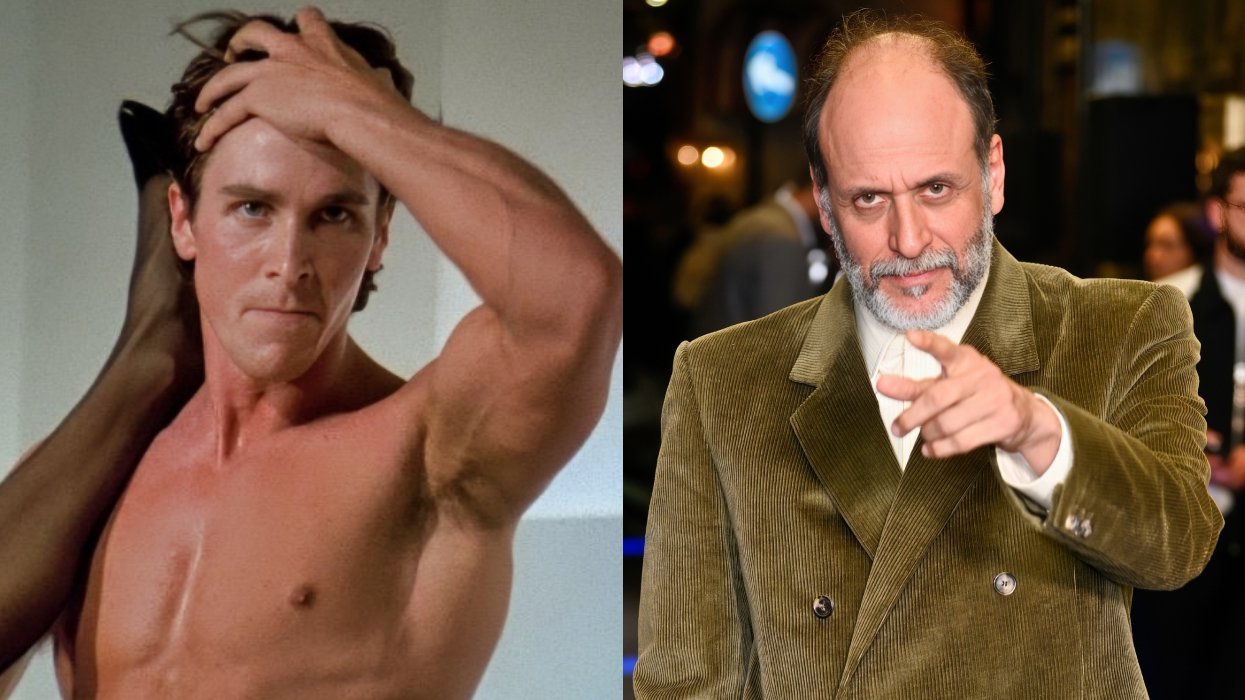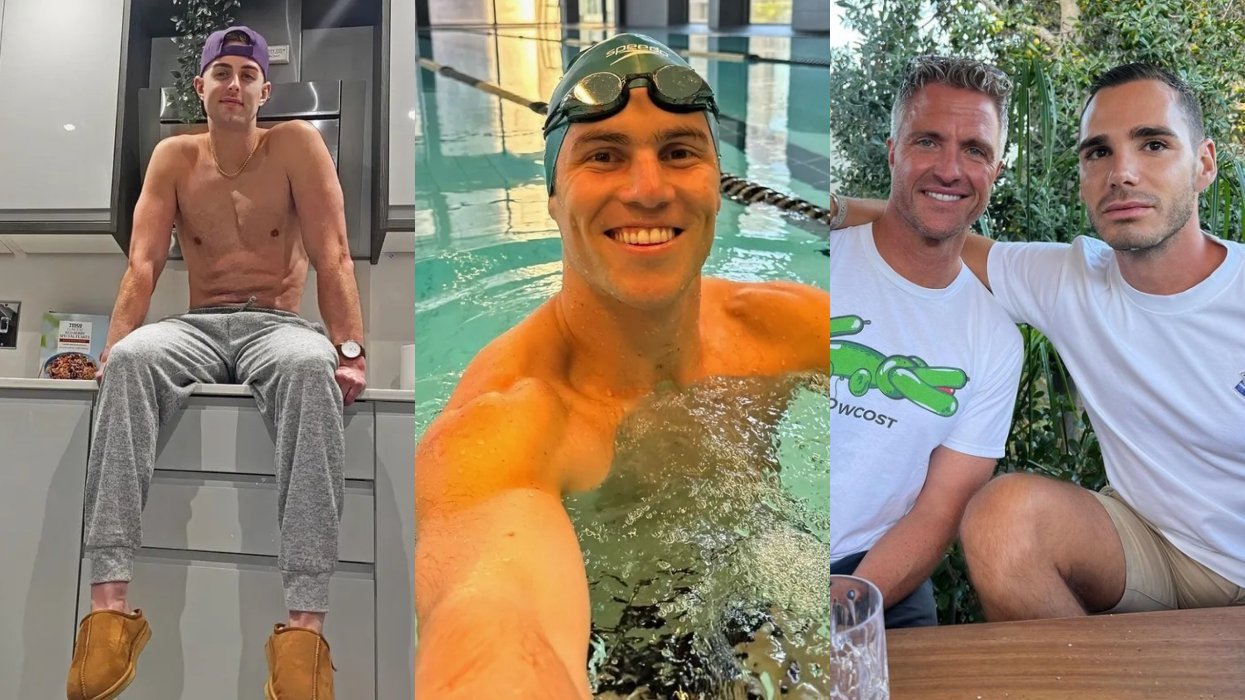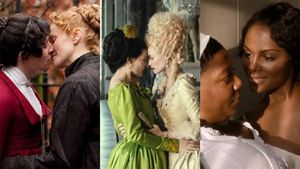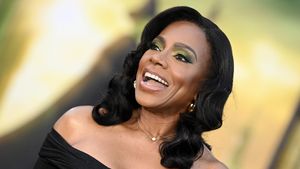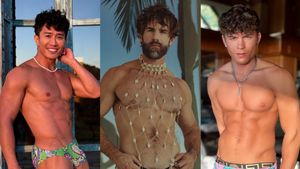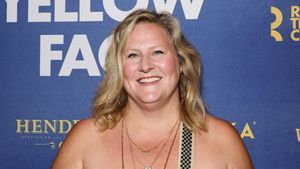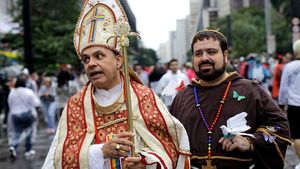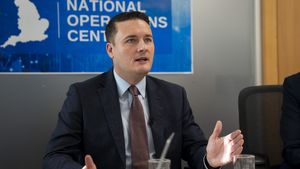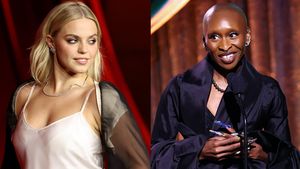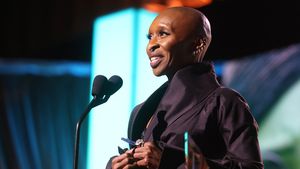Here's what they had to say about making the movie, its mindblowing success, and what all that Oscar talk meant to them on the road to the main stage.
Trevante Rhodes, on filming his favorite scene:
The scene with Naomie [Harris]. Everyday was great and literally every night I would call my mom and be, like, "Yo, this is insane, this experience...." But that one day--I think it was the third day of filming or something--there was just this moment when I understood what this art form really was. I felt everything that this person was feeling. Most of the time when I'm acting, I see myself acting, but in that moment, I saw what Chiron saw. It was the most unique experience.

After the first take, we're balling and everything, she just reaches under the table--doesn't say a dang thing, she just looks at me in my eyes and touches my knee. It was a beautiful moment. It's hard to explain what that even meant to me. It was the moment I felt when I belonged.
Related | Trevante Rhodes Shines in Moonlight, This Fall's Essential Queer Black Film
Tarell Alvin McCraney, on the bittersweet nature of the film's success:
There are some amazing performances and Barry did an incredible job of showcasing a landscape that I think people feel less for--it takes them out long enough for them to let their guards down, but then find themselves intimately familiar with at the same time. He's that specific in his storytelling. But it's hard to objectively tell because I hear people having many different, various ways in, and sometimes it's painful to hear. Somebody will say, 'Oh, well the bullying was really interesting to me,' and I'm like, 'Yeah, well, that's great.' I understand that that is a place where we can find common ground and talk, but it's also a nightmare for me that I continue to relive.

But I also think there's so much joy in the piece. And so much space to see life be hopeful, and grow beyond just the circumstances that we're placed in. I think that's always thrilling to experience, rather than just watch. I think it's something that Barry did really well, which is allow us to experience hope in a place that seems hopeless.
Related | Moonlight Writer Tarell Alvin McCraney Shares 10 Songs That Shaped His Life
Barry Jenkins, on when he knew he had something special on his hands:
You know, it's one thing to be on set and you're creating. I think when you get back in the edit you see that creation. It always takes a different shape. And there were a few scenes: the swimming scene being one and the scene where Naomie walks up to Ashton [Sanders] in the courtyard right before she takes the money out of his pocket.

Being in the edit watching those two scenes, when we first put them together into the version that ended up being in the final film, you're realizing, 'Oh, this is different.' Because my goal was to make a movie that was driven by the consciousness of the character and not so much by the familiarity of the plot. And those two sequences early on in the edit I realized we may have captured this thing we aspired to.
Related | Trevante Rhodes & Moonlight, In Focus (Slideshow)
Tarell, on when he knew:
It was a success when Barry told me he finished it. I mean, when I first saw a screening I was like, 'Great, we did it! Awesome.' I was very happy at that moment to see it and revel in the beauty of it. Everything else after that has been surprising and thrilling and scary. But, yeah, I was happy that two boys from Liberty City told a story that was real and intimate to them.
Related | 10 Best Queer Characters of 2016
Trevante, on the initial Oscar buzz:
I'm someone who just likes to stay in the middle--ups and downs are inevitable. You pay too much attention to the ups, you gotta pay equal attention to the downs. The Oscar buzz and all is going to prompt more people to see the film, which is everything. I love great films, and to me it's a great film, regardless of whether I was in it or not, I would see this film. I'm excited that it's getting the praise it is and for Barry--you go back and look at all of Barry's stuff, dude, is just great. He needs to make more stuff, the world needs for him to make more stuff.

Barry, on the buzz:
It's crazy, man, it's crazy. The more people talk about it, the more awards, the more likely somebody who wouldn't hear about this film is to hear about the film. It just really helps spread the word. And I don't have to remind myself, I'm very, very aware this is still, no matter what has happened in the last couple months, a very small film. And so I feel privileged that any of this stuff is happening. And I always see it as an opportunity to share the film with more and more of an audience.
Related | Alvin Ailey Pays Tribute to Moonlight In Beautiful Dance Short Film
As for me, I have no control over these awards. I don't remake the film anytime it gets nominated for this or for that. I tried to do a pretty good job of deciding for myself what the film was--its strengths and its weaknesses, its merits and its drawbacks--before we world premiered. And I just try to stay in that place.

(Photo by Jordan Strauss/Invision/AP)
Barry, on Moonlight's impact:
Because Tarrell and I are from a very particular block at a very particular time and both of our minds were put through a very particular ordeal, I don't know if everyone can see themselves in the character....I think people are responding [to] or respecting the fact that Tarell and I made this movie essentially for an audience of two. It was about fidelity to my experience and his experience. And the fact that so many other people can see themselves in that leaves me speechless.
